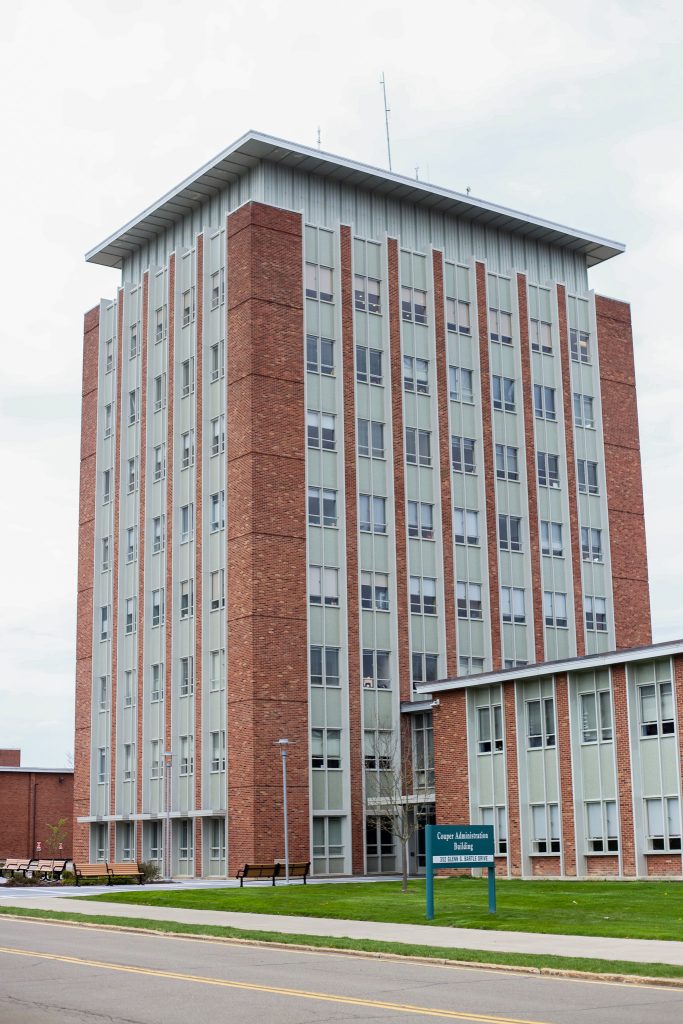As the campus community returns just months after the largest student-led demonstrations in a generation, three high-level Binghamton University administrators, in a Monday afternoon B-Line, outlined the University’s approach to activism for the upcoming year.
The letter was signed by Provost and Executive Vice President for Academic Affairs Donald Hall, Vice President for Student Affairs Brian Rose and Vice President for Operations JoAnn Navarro.
“No right, however, is absolute,” the three administrators wrote, referring to the right to free expression outlined in the First Amendment. “Binghamton will not permit protest and expression that disrupts the University’s academic mission, interferes with the free expression of others or threatens members of the campus community or campus property. We urge all of you to accept your responsibility to maintain a campus environment that respects those boundaries.”
Last semester, in April, the Student Association Congress, a 35-member body elected by undergraduates, voted to pass a resolution expressing support for the Boycott, Divestment, Sanctions movement. The legislation was led by Divest from Death, a coalition of over 20 student organizations that sought to pressure the University to cut ties with the defense industry and recognize Israel as an apartheid state, among other demands. Several clauses were later struck down by the Student Association’s Judicial Board.
Then, on May 1, following a Palestine Solidarity Festival, an encampment was established on the Peace Quad in the image of others across campuses nationwide. It stood for three days before being disassembled ahead of a University-imposed deadline, backed by a heavy police presence.
The letter mentioned an established University policy prohibiting camping on campus grounds, adding that administrators would not “entertain exceptions to the policy.”
Demonstrations on campus concerning the Oct. 7 Hamas attack on Israel and the Israeli military campaign in Gaza were widespread during the last academic year. On Oct. 9, the largest Jewish organizations on campus — the BU Zionist Organization, Chabad, Hillel and the Orthodox Union-Jewish Learning Initiative on Campus — organized a vigil mourning the loss of over 1,200 in Israel.
On Oct. 12, Students for Justice in Palestine, an activist group advocating for the empowerment of the Palestinian people, led a rally expressing solidarity with Gazan civilians.
In their letter, the administrators also linked to policies governing posting on bulletin boards, chalking on pavement and the reservation of campus spaces, as well as guidelines for the use of these spaces. They also cited a SUNY policy titled “Rules for the Maintenance of Public Order.”
“The purpose of this letter is to provide notice and clarity as to how our campus will remain faithful to our values while also maintaining a campus environment that supports the rights of all to pursue learning and discovery free of harassment, disruption and intimidation,” the letter read.
Throughout last October, many organizations in the multicultural community released statements condemning an administration — and a University president — who, in their view, were insufficiently supportive of Muslim, Arab and Palestinian students. A public and lengthy University announcement citing policy — and consequences for noncompliance — is notable following a year of heightened tensions on campus.
The letter ended with a non-exhaustive list of campus initiatives to “create contexts that support civil dialogue around controversial ideas within the boundaries of our policies,” including the Common Read Experience, online and in-person workshops and student positions focused on civil dialogue.
“The framework of our approach is to support and facilitate ample opportunity for expressive activity and campus dialogue around controversial ideas, while simultaneously establishing firm expectations that all such expressive activity must comport with university policies,” the letter read.



